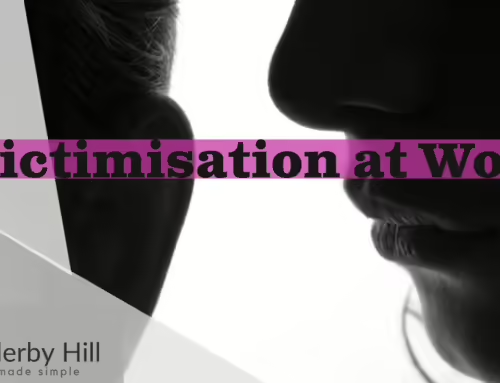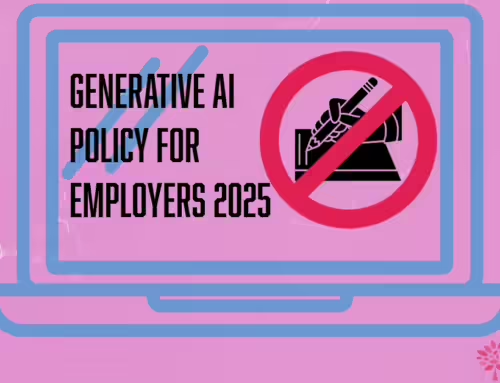The Employment Rights Bill 2024 will drastically change the rights employees have from the start of their tenure. This includes the right to claim unfair dismissal as a day one right.
UPDATE: This article was published prior to the government’s official announcement of the Employment Rights Bill on 10/10/2024. To find out more please visit our post covering the news here https://willerbyhill.co.uk/employment-rights-bill-major-changes-announced/

Photo by Arlington Research on Unsplash
How are Unfair Dismissals Changing?
As part of sweeping changes to ‘day one rights’ outlined by Keir Starmer’s Labour Government (including the previously discussed changes to tipping), employees will be granted the right to claim unfair dismissal immediately from the commencement of their employment.
Currently, there is a qualifying period of two years service before an employee has the right to an unfair dismissal claim. Once this new law is enacted, when an employee has completed their probation period, they will gain the ability to dispute their dismissal.
What do you Need to Do?
While the exact changes are still unclear, we are aware of the broad impact these adjustments will have on businesses. Please bear in mind that the following information and guidance is subject to change and we will continue to post updates regarding any changes once more information is provided by the government.
Changes to Probation Periods
The government have announced that this legislation would also introduce a maximum probation period of six months which means the way we address probation for new employees will need to change.
The following steps may be necessary to comply with these changes…
- Review new employee contracts to ensure probation periods are up to a maximum of 6 months and the notice period to be given during probation for termination should be no less than 1 week for most roles after 1 months service.
- Ensure the probation period clause contains an explicit start and end date so it is clear as to the time frame when decisions could be made about ongoing employment.
- Formalise the probation period review process as a business-wide policy and ensure all new employees are aware of the necessary targets they will have to reach for their probation period to end.
Importance to Employee Development Meetings
During the probation period, and as part of the policy, it will become critical to have evidence of regularly meeting with new employees to ensure that they are on track to achieve any necessary targets to pass their probation. These should take place well in advance of the end of their probation period. The frequency of the meetings will be driven by circumstances, but it would be wise to consider at least 2 or 3 during the 6-month period, with more if things aren’t going well.
Firstly, you should programme in regular catch ups in advance (e.g. each month) and focus on gathering evidence of performance especially any concerns or issues. Ensure expectations are clear, objective and ideally measurable against set timeframes.
Secondly, where concerns exist, document them and set clear targets with review dates within the defined probation period. It is unlikely that vague objectives such as improve attitude will be sufficient to justify dismissal.
Lastly, you should follow up concerns in writing so there is an evidence trail of actions and issues. Document each meeting for clarity of what has been requested/agreed to assist in any tribunal once the probation period is over.
End of Employee Probation Procedures
Due to the rights which employees will gain from day one, it is vital that you assess the verdict of all employee probation periods very carefully.
1) If the intention is to pass probation this should be confirmed in writing.
2) If the intention is not to pass probation this decision should be reached, and the employee advised at least before the end of the probation, minus any notice period. It is vital that any notice period is concluded by the time probation ends.
3) The employee should be advised in writing of the requirement to attend a meeting to discuss their performance and be given the right to be accompanied. They should also receive a clear statement as to the concerns before they attend the meeting.
4) During the meeting any relevant evidence should be reviewed (such as old meeting notes) and the employee should be given a chance to respond.
5) The outcome of the meeting should be delivered after a suitable adjournment and confirmed in writing with a clear statement as to why they did not pass probation.
What Happens Next?
There certainly will be concerns from employers that these changes will be introduced quickly and could massively disrupt the traditional means of recruitment and evaluation. It is highly unlikely that employers will see a significant uptick in employee claims and it could be months after the changes are passed through government that a precedent is set for how unfair dismissals are handled from this point forward.
It is much more likely that all of the relevant changes to employment law outlined by the Government’s New Deal for Working People will come into effect slowly. The more complex issues, such as how workers are awarded basic rights, will take time to be implemented. However, the guidance presented here will remain relevant as a broad roadmap of navigating these changes.
Share this:
- Click to email a link to a friend (Opens in new window) Email
- Click to print (Opens in new window) Print
- Click to share on Pinterest (Opens in new window) Pinterest
- Click to share on X (Opens in new window) X
- Click to share on LinkedIn (Opens in new window) LinkedIn
- Click to share on Facebook (Opens in new window) Facebook




